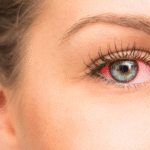Adverse reactions to medications can manifest in various ways. A true drug allergy involves a specific immune system response. When the body mistakenly identifies a medication as a harmful substance, it triggers an allergic reaction. This releases chemicals that cause a range of symptoms. These reactions can occur with any drug, whether prescription, over-the-counter, or herbal. They can appear within an hour or take several days to develop. Understanding the common signs associated with drug allergies is a step in managing your health and communicating effectively with healthcare providers.
Skin Rash and Hives
One of the most frequent indicators of drug allergies is a change in the skin’s appearance. Hives, which are raised, itchy, red welts, can appear suddenly and may change shape or location. A morbilliform rash, resembling measles, is another common skin reaction, characterized by flat, red spots that may merge. These skin manifestations can be uncomfortable and are a clear signal that the body is reacting negatively to a substance.
Itching and Swelling
A drug allergy can cause persistent itching, sometimes without any visible signs of a rash. Another significant symptom is swelling, medically known as angioedema, which commonly affects areas with soft, loose tissues. This can include swelling of the hands and feet, which may cause discomfort and make it difficult to wear shoes or jewelry.
Facial swelling, affecting the lips, tongue, eyelids, or the entire face, is especially concerning as it can indicate a more severe allergic reaction. These changes can alter a person’s appearance and may progress rapidly. It is helpful to recognize these symptoms as potential signs of a drug allergy requiring medical evaluation.
Coughing and Wheezing
Respiratory symptoms can be a sign of a serious drug allergy. An allergic reaction can cause the airways to constrict, leading to coughing, wheezing, and a feeling of tightness in the chest. Shortness of breath or difficulty breathing requires immediate attention, as it can escalate quickly. These symptoms indicate that the allergic reaction is affecting the respiratory system, a serious development that should not be ignored.
Fever and Fatigue
While less common, systemic symptoms like fever and fatigue can also accompany a drug allergy. A drug-induced fever may develop days or even weeks after starting a new medication and can be accompanied by general feelings of being unwell, similar to having the flu. In some cases, these symptoms are part of a more complex reaction that can also involve:
- Swollen lymph nodes
- Joint pain and inflammation
- A widespread, severe rash
These reactions, sometimes referred to as serum sickness-like reactions, represent a more widespread inflammatory response by the immune system to the medication.
Recognize Symptoms, Prevent Drug Allergies
Recognizing the symptoms of a drug allergy is key for your safety when taking medications. From skin reactions, such as rashes and hives, to more systemic issues, including fever and respiratory distress, these signs indicate a problem. They are your body’s way of alerting you. If you suspect you are experiencing a drug allergy, contact a healthcare provider. Discuss any symptoms or concerns about medication allergies with them.



